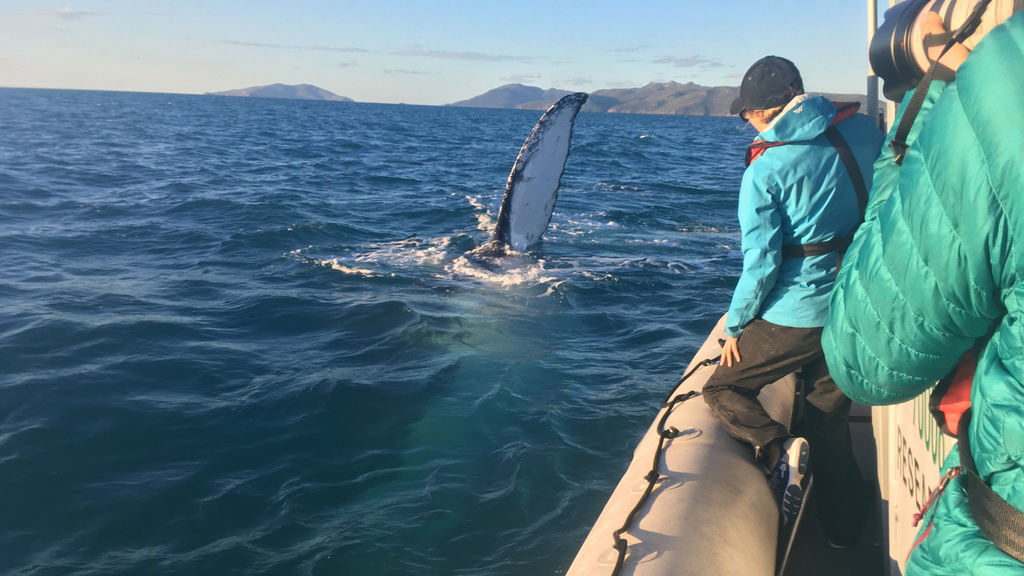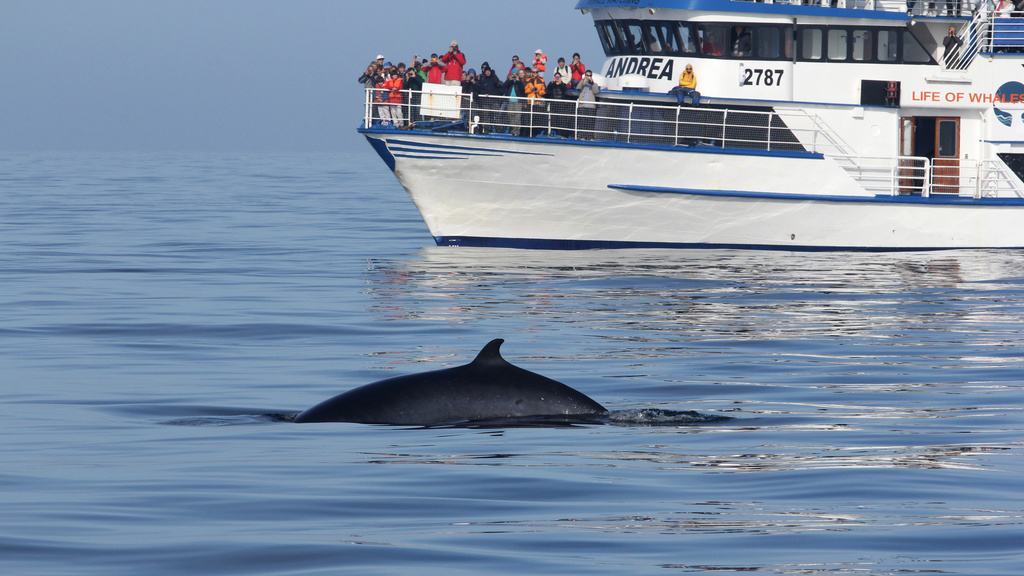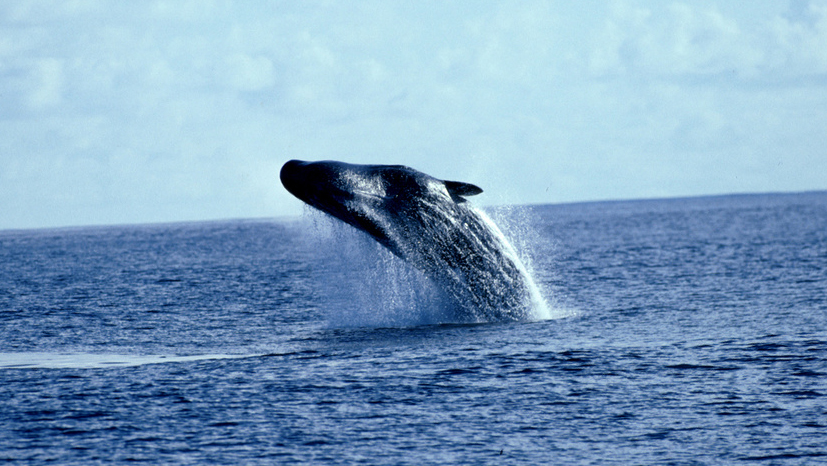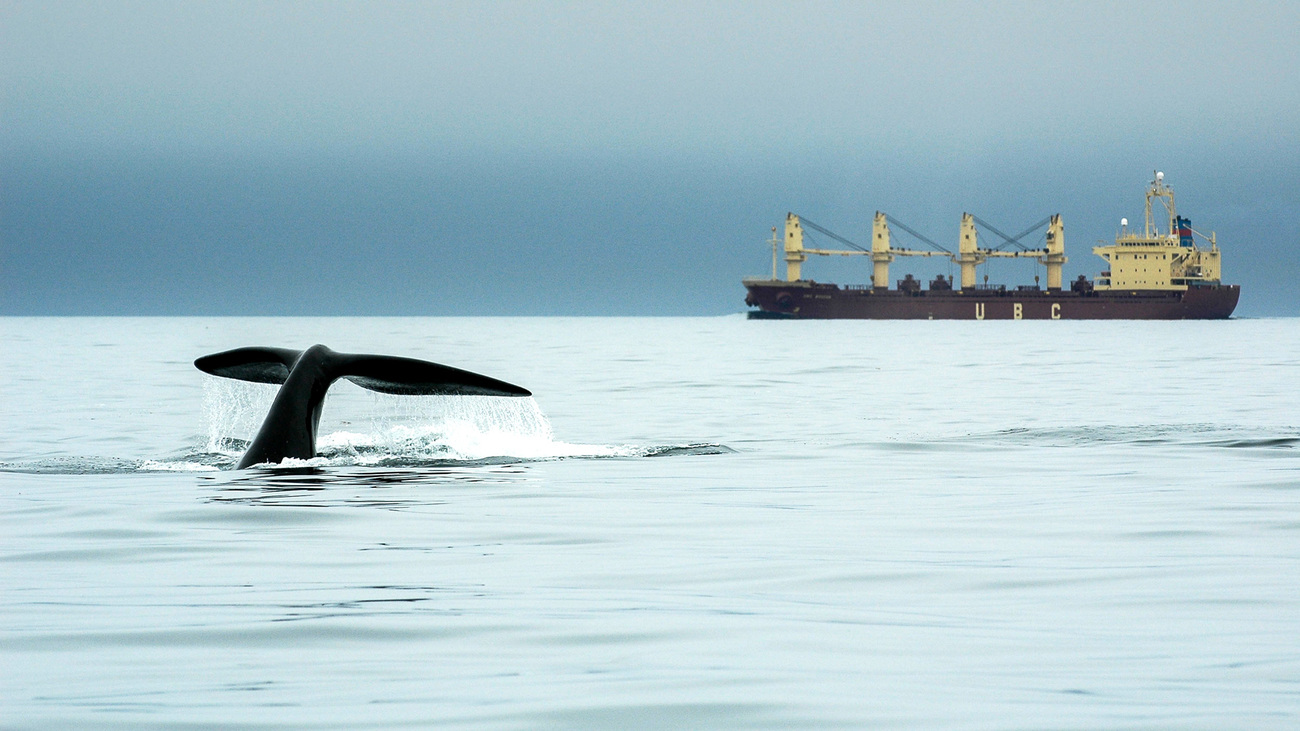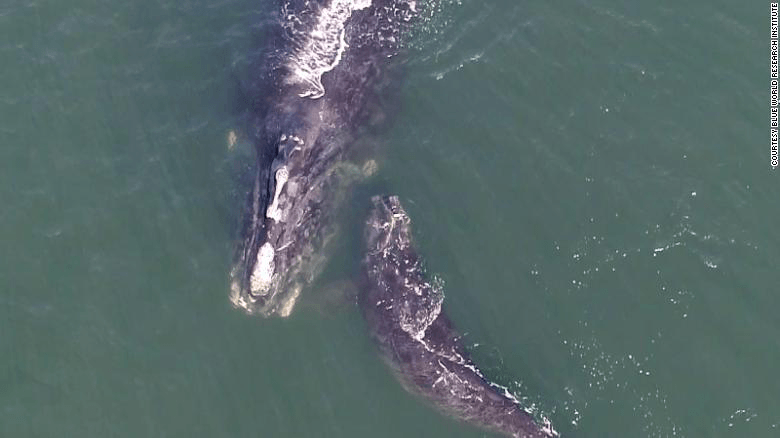marine conservation
marine conservation
Life in the ocean is under threat. IFAW works to strengthen protections for whales, other marine species, and ocean habitats worldwide. We focus on the threats of entanglement in fishing gear, collisions with ships, underwater noise pollution, commercial whaling and climate change. Whether promoting alternative industrial practices or lobbying for stronger laws, we focus on solutions that enable animals and people to thrive together.
Dr. Sidney Holt, 1926–2019
We were all saddened by the passing of our long-time mentor, advisor, and colleague Dr. Sidney Holt in December 2019. Sidney’s singular contributions to marine conservation and leviathan legacy of leadership in the global campaign to end commercial whaling will ripple across the ocean planet for generations to come. Razor sharp and prolific to the end, Sidney lived to celebrate the end of Antarctic whaling and see the International Whaling Commission migrate from a whalers’ club toward world-class whale conservation in the 21st century, a course he had charted 60 years before. Farewell, dear friend. Well done.
celebrating the end of whaling in Iceland
Seventeen years of campaigning to end commercial whaling in Iceland is finally paying off. In spring 2020 we received word from Iceland that neither minke nor fin whaling would take place that calendar year. This marks the second year in a row without any whaling in Iceland.
The end of Icelandic whaling is good news for whales, good news for Iceland and good news for marine conservation worldwide. IFAW salutes and commends our long-time partners and friends in Iceland who have been working to end the cruel and wasteful killing of fin whales and minke whales in Icelandic waters and to end consumption of whale meat by international tourists.
In a public statement, the last remaining company conducting minke whaling confirmed that it would cease operations. The main reason given was economic inefficiency and the extended whale sanctuary in Faxaflói Bay, off Reykjavík. IFAW instigated and played a key role in the creation of this whale sanctuary and its later expansion.
A second, lone company that carries out fin whaling is yet to make an official announcement about the future of its enterprise and whether the commercial fin whale hunt might resume in 2021. Public sentiment in Iceland favors an end to all whaling and patience with the last remaining whalers is wearing thin. IFAW started the biggest-ever petition in Iceland calling for an end to whaling, with well over 174,000 signatures delivered to the Icelandic government.
Fin whales—the second largest animal on Earth—had previously been harpooned in Iceland specifically for export to Japan. Minke whales were killed for the domestic whale meat market, but mainly used to feed curious tourists in the country. More than 1,500 fin and minke whales have been killed in Iceland since 2003, the year the country resumed commercial whaling after a 13-year hiatus. IFAW has worked with Icelanders since this time to promote responsible whale watching as an alternative to the cruelty of whaling.
Reducing the negative impact of shipping
As part of ongoing efforts to reduce the negative impacts of shipping on marine life and the marine environment, IFAW has continued to raise awareness of the detrimental effects of continuous underwater noise from shipping. Ship propellers are the major cause of this noise, and the increase in the size, speed and number of ships globally has led to huge increases to the constant din in oceans throughout the globe.
Technical options and reducing ship speeds are straightforward solutions that reduce underwater noise from shipping. IFAW continues to work within the International Maritime Organization (IMO), the United Nations body governing marine traffic, to place the issue onto the work agenda of the Marine Environment Protection Committee. IFAW submitted a supportive paper, supported by a wide coalition of NGOs, and is working with various governments to secure their support as well.
Slowing down ships not only reduces this constant background noise, it also results in fewer ship strikes and reduced greenhouse gas emissions. During fiscal year 20, this link was documented in a research paper by IFAW’s Russell Leaper, “The Role of Slower Vessel Speeds in Reducing Greenhouse Gas Emissions, Underwater Noise and Collision Risk to Whales,” which was published in Frontiers for Marine Science. The research shows that an achievable 10-15% reduction in global ship speeds would likely reduce the number of whales killed by ship strikes or affected by shipping noise by 50%. In light of these findings, IFAW is calling for a 10% reduction in shipping speeds. We are working to find holistic solutions and are collaborating with industry, having made contact with nine international shipping companies and associations.
Collisions between vessels and whales (“ship strikes”) remain an underestimated threat to whales.
Experts suspect that for every whale we see that has been (fatally) injured by a strike, twenty whales with the same fate go undetected.
Protecting endangered sperm whales from ship strikes in Greece
Working with our local partners in Greece to address the significant and serious conservation and welfare problem that ship strike poses to an endangered population of sperm whales in the Hellenic Trench, west of Greece, has resulted in significant engagement with the Greek government, the Hellenic Chamber of Shipping, and the Union of Greek Shipowners over the last year. Consultation is now taking place at the Ministerial level to consider ship strike risk reduction options to help protect these endangered whales.
To achieve change, we are also joining forces with other NGOs to help drive political decisions and highlight the impacts human activities are having on marine animals. One heartbreaking example came to the world’s attention in the spring of 2020 when a fin whale missing its entire tail fluke was spotted in the Mediterranean Sea. It quickly became evident that the whale must have fallen victim to both a ship strike and entanglement in fishing gear, eventually causing it to lose its tail flukes. IFAW is working on smart and collaborative solutions to address these serious conservation and welfare issues. These deaths are avoidable.
campaign to save North Atlantic right whales
IFAW continues to work to ensure the survival of the critically endangered North Atlantic right whale (NARW). With fewer than 360 North Atlantic right whales remaining, our work focuses on reducing the threats they face in their critical habitat off the east coast of North America.
The biggest threats these whales face is entanglement in outmoded fishing gear or collisions with boats and ships. Our work to eliminate these threats is more urgent than ever as only 25% of the remaining whales are reproductive-aged females. The death of even one animal is potentially catastrophic to species recovery. Tragically, two new-born calves were killed in 2020, making a total of 43 dead (or presumed dead) North Atlantic right whales since 2017. Staggeringly, that’s nearly 12% of the known population dead in just three years. In every case where the cause of death could be definitively determined, it was human activity (entanglements and vessel strikes) that killed each whale.
Our team has focused first and foremost on extensive outreach with industry, government and local stakeholders to develop and implement solutions to protect these whales. One crucial element to NARW survival is the development and use of ropeless fishing gear, which would eliminate the number of fixed vertical buoy ropes currently in the water, thus ensuring safe passage for whales through migration corridors and into critical habitats. We are conducting at-sea trials of ropeless gear with the fishing industry, scientists, and technology companies to accelerate its use in the water as the sustainable long-term solution.
Alongside this effort to reduce the risk of vessel strikes, we are working with shipping companies to educate them on the importance of slow transit and speed restriction compliance. The Whale Alert mobile app allows commercial and recreational mariners and the general public to locate whale “safety zones” and enables real-time reporting of whale sightings to ensure improved protection and to minimize the possibility of vessel strikes.
IFAW is leading a campaign that drives public awareness of the critical conservation situation for this species and advocates for essential regulatory change to drive strong mitigation measures.
IFAW’s key legislative efforts helped secure US$3 million in funding in the fiscal year 20 year-end Federal Appropriations package for North Atlantic right whale conservation, including US$1 million towards a pilot program for innovations in new fishing gear technology to reduce the risk of entanglement. In addition, our efforts resulted in the successful re-introduction of SAVE Right Whales Act in the US House of Representatives and Senate that establishes a new collaborative research grant program allocating US$50 million over the next decade for conservation action focusing on the North Atlantic right whale. It passed favorably with bipartisan support out of committee and the bill awaits a final vote late in late fall, 2020.
Additionally, IFAW commissioned “Ropeless is Real,” critical research released in May 2020 that discusses the efficacy of ropeless gear technology and the role it plays in reducing NARW entanglements. The report was released within the context of a broader effort that included over 5,500 IFAW supporters from all 50 states in the U.S. calling upon the National Oceanic and Atmospheric Administration (NOAA) to increase measures to protect NARWs from further entanglement and vessel strikes.
Stay in the know. Be ready to act.
You’ll receive news, updates on activities and on future giving opportunities. You can unsubscribe at any time.